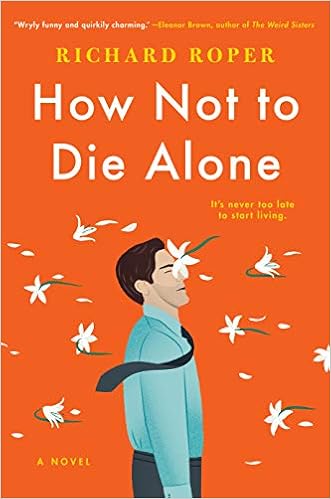“How Not to Die Alone” by Richard Roper
Tonight’s review is of the Audible book, although you may also obtain it as a Kindle, a print book or a CD on Amazon. The author is Richard Roper, who is a Brit. This warrants mention, as the situation portrayed in the book seems to be a particularly – and even peculiarly – British thing. The book is well narrated by Simon Vance, in a rich and eloquent British accent. So on with the show.

The story centers on Andrew, his last name unspecified until near the end (as if it would make any difference, but which I assume was unmentioned to give him more of an “everyman” vibe). He’s, a forlorn, reclusive, apparently long-suffering man of 42, who works for something called the “council,” which is apparently some British governmental agency that looks after elderly people who have died alone. It’s a benevolent bureaucracy, its purpose being to learn if there are people – like family – who ought to know an elder has passed away unnoticed. Its agents, if you will – such as our man Andrew – enter the home or flat to root through personal belongings in search of money stuffed under a mattress and names and addresses of the next of kin who should be contacted.
So we have a conventional comic novel setup here, the pathetic loner in a pathetic job. A major complication is that he’s misrepresented himself to his boss in order to be employed and the lie is constantly getting in his way. We, the reader or listener, suffer along with Andrew, hoping he can extricate himself from his self-imposed languor and make something of himself and his life, which is so overly focused of death.
And so, right on cue, a female named Peggy comes to work. They become partners in the work and drinking buddies at the pub. The usual complications ensue, and Roper handles them well, keeping us hoping against hope as Andrew stumbles from one escapade to another. We always suspect there will be a satisfactory and satisfying resolution to his plight and his relationship with Peggy.
Even knowing all that in the back of my mind, it was still a fun listen and I laughed out loud, often. Simon Vance’s droll voiceover carried such moments, and the story’s momentum, well.




